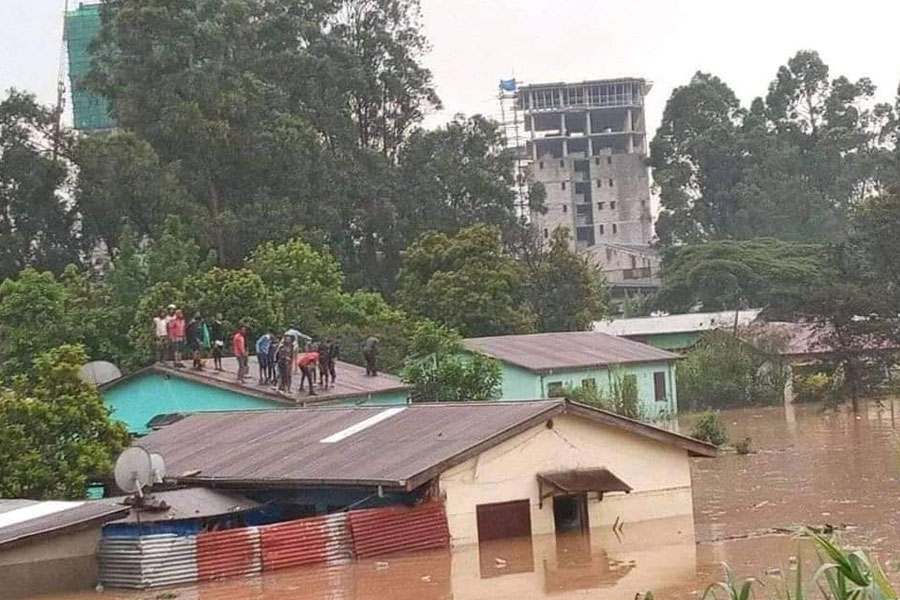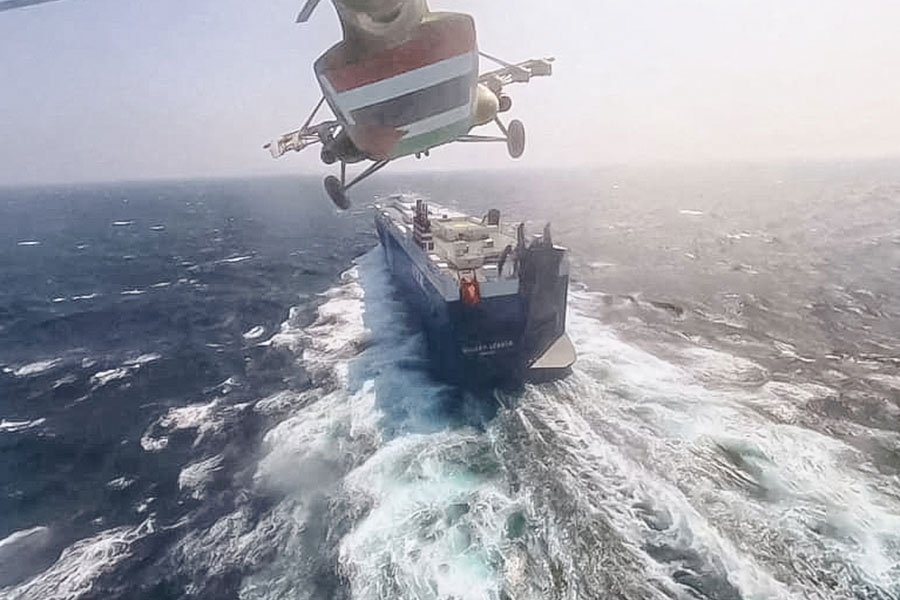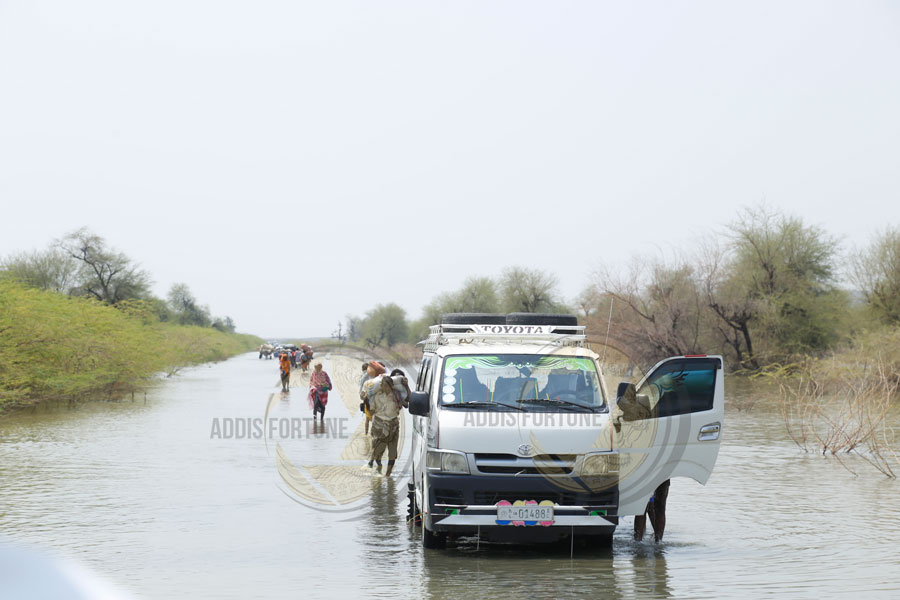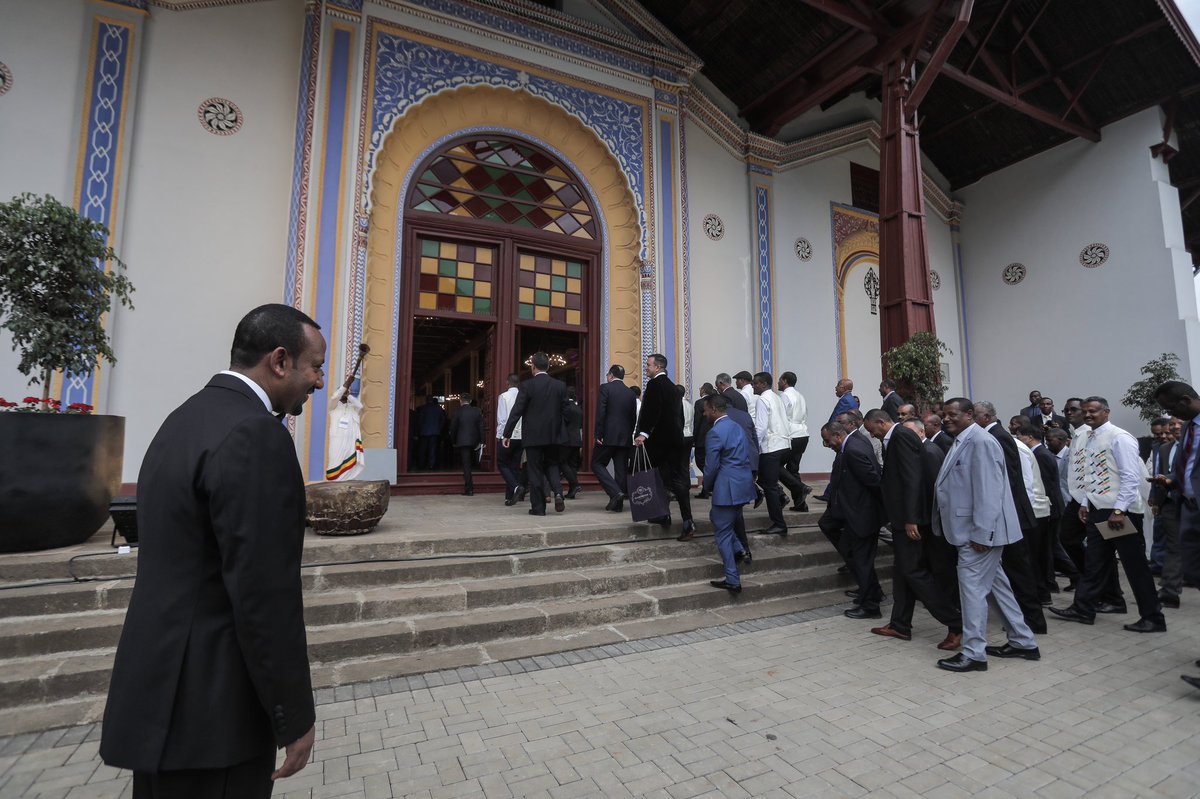
View From Arada | Jan 27,2024
Jul 1 , 2023
By Eden Sahle
Last week saw a tragic accident with the Titan Submersible that descended to view the wrecks of the Titanic ship costing the lives of five people who were on board.
I was inspired by the concern shown by leaders of the United States, Canada, United Kingdom and France, quickly pulling resources together and reportedly spending millions in search of their citizens. It is a huge privilege that those of us on African soil do not get to experience.
I could not help but compare the situation with Ethiopian and Eritrean migrants that perish at the ocean trying to flee their homeland in search of safety and better life.
Evidently, these poor nations do not have the resources to rescue people in danger as those developed countries did. However, a word of compassion to the victims and their grieving families does not require much.
It is heartbreaking how life in developing countries is undervalued. The plethora of alarming reports of deaths and human rights abuses of migrants is accompanied by complicity in breaching fundamental principles of local and international laws.
Irrespective of who the individuals are there is a principle of saving the lives of those in danger as a long-standing and fundamental tradition of seafaring. This obligation is incorporated as a legal duty of the search and rescue system.
Nevertheless, the complex phenomenon of multinational migrants by sea exposed the fragmentation of international law obstructing saving lives, particularly in the Mediterranean Sea.
A couple of Ethiopian and Eritrean migrants I have spoken to who live in Stuttgart and Stockholm cities have a horror real-life story to tell from their illegal voyage to Europe 13 years ago. They have gone through physical and emotional abuse by their human traffickers in Libya and have lost several people they met on their journey including children and pregnant women.
They claimed to have paid 2,000 dollars each to the traffickers who took them on deadly voyages while several vessels passed by witnessing the sinking rubber boat and cry for help. They are amongst the lucky few who later got rescued by Italian patrol boats and granted asylum.
They do not regret their decision to leave their homelands although what they have seen along the way changed them for the worst. Some of their friends took their own lives in Europe due to the trauma they experienced on the journey. They have gratitude as they now live in countries which not just granted them citizenship but also saved their lives. For them, being valued by a country is something they never experienced in their hometowns.
Gone are such days. Rescue and asylum efforts have become next to impossible as European nations close their ports to curb illegal migration. Now illegal migrants searching for a better life only get death and injuries.
If they are rescued, they are returned to places which put them in a crisis and arbitrary arrest. However, unaware illegal travellers make their way to the sea unprepared for the ordeal that awaits them.
As these tragedies persistently continue to unfold leaders of developing countries turned a blind eye while their citizens lost their lives. These poor individuals are denied protection in their homeland and internationally.
African nations left their responsibilities to European states who halted their search and rescue operations seven years ago. European states have done desperate measures of closing their ports while prosecuting humanitarian organisations that rescue migrants and bring them to their borders.
They have become reluctant to disembarkation and asylum processing of migrants. But the state's actions have also discouraged vessels that might otherwise be ready to intervene to save lives who are taking massive risks in search of a safe haven.
Commercial vessels are caught up in the crisis of rescuing whoever is in danger. They have a legal duty to assist individuals and people in danger at sea as stated at the 1982 United Nations Convention on the Law of the Sea.
Although the primary duty lies on the states it is nonetheless recognised that this duty applies for vessels as well. These obligations stretch to shipmasters of commercial, private and military states owned vessels.
The International Maritime Organization, the International Convention for the Safety of Life at Sea and the International Convention on Maritime Search & Rescue Convention require masters of ships not only to rescue those in danger at sea but also to take them to a place of safety.
International law does not entail a consequent obligation on states to accept migrants at their ports. The law leaves a gap in the governments' discretion and choice to welcome or not to welcome those who are coming to their seaports illegally.
Although inconsistent with international human rights and refugee law obligations that states are bound by, this implies that states retain their unlimited sovereign power to control their borders from hopeless migrants who are neglected by their own countries.
PUBLISHED ON
Jul 01,2023 [ VOL
24 , NO
1209]

View From Arada | Jan 27,2024

News Analysis | Aug 21,2021

Radar | May 12,2024

Life Matters | Jun 05,2023

Editorial | Jul 22,2023

View From Arada | Feb 01,2020

Fortune News | Dec 23,2023

Sunday with Eden | Jul 10,2021

Agenda | Sep 19,2020

View From Arada | May 25,2019

My Opinion | 131819 Views | Aug 14,2021

My Opinion | 128203 Views | Aug 21,2021

My Opinion | 126147 Views | Sep 10,2021

My Opinion | 123767 Views | Aug 07,2021

Dec 22 , 2024 . By TIZITA SHEWAFERAW
Charged with transforming colossal state-owned enterprises into modern and competitiv...

Aug 18 , 2024 . By AKSAH ITALO
Although predictable Yonas Zerihun's job in the ride-hailing service is not immune to...

Jul 28 , 2024 . By TIZITA SHEWAFERAW
Unhabitual, perhaps too many, Samuel Gebreyohannes, 38, used to occasionally enjoy a couple of beers at breakfast. However, he recently swit...

Jul 13 , 2024 . By AKSAH ITALO
Investors who rely on tractors, trucks, and field vehicles for commuting, transporting commodities, and f...

Jul 5 , 2025
Six years ago, Ethiopia was the darling of international liberal commentators. A year...

Jun 28 , 2025
Meseret Damtie, the assertive auditor general, has never been shy about naming names...

Jun 21 , 2025
A well-worn adage says, “Budget is not destiny, but it is direction.” Examining t...

Jun 14 , 2025
Yet again, the Horn of Africa is bracing for trouble. A region already frayed by wars...

Jul 6 , 2025 . By BEZAWIT HULUAGER
The federal legislature gave Prime Minister Abiy Ahmed (PhD) what he wanted: a 1.9 tr...

Jul 6 , 2025 . By YITBAREK GETACHEW
In a city rising skyward at breakneck speed, a reckoning has arrived. Authorities in...

Jul 6 , 2025 . By NAHOM AYELE
A landmark directive from the Ministry of Finance signals a paradigm shift in the cou...

Jul 6 , 2025 . By NAHOM AYELE
Awash Bank has announced plans to establish a dedicated investment banking subsidiary...